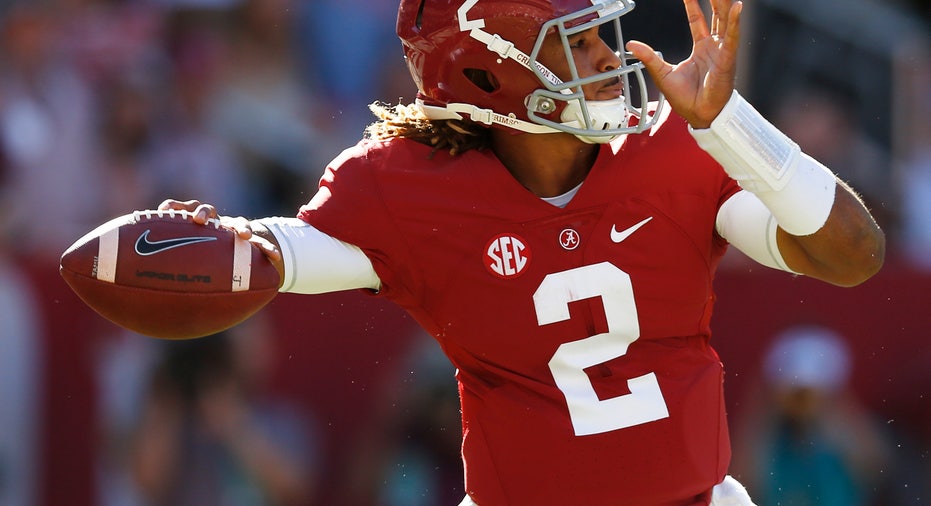College Football Bowl Games A Boon For Local Economies: Study

College football’s bowl season means big money for the local economies of its host cities – especially those that host one of the marquee “New Year’s Six” playoff matchups, according to a recent study.
An analysis of the NCAA’s 2014 and 2015 postseasons found that the 41 annual bowl games had a collective annual impact of $1.5 billion, said researchers at San Diego State University and George Washington University.
“We defined it as money that comes into that local economy that wouldn’t have come into it otherwise,” said Mark Testa, a professor at San Diego State’s School of Hospitality and Tourism Management. “
Of that $1.5 billion, the six bowl games that are generally used in the College Football Playoff semifinals – the Peach, Fiesta, Rose, Orange, Cotton and Sugar Bowls – had an average impact of more than $93.7 million, the study found. Those bowl games purportedly generated a total of more than $600 million in outside spending in 2014 and 2015.
Bowl games composed of teams in the prominent “Power Five” conferences generated an average impact of more than $34 million, while contests featuring the smaller “Group of Five” conferences generated an average of more than $12 million.
The study defined “economic impact” as spending that occurred outside the immediate vicinity of the game by consumers who weren’t part of the local community. Researchers tracked the use of amenities such as food, lodging and local entertainment. Spending on hotels tended to increase for the more prestigious matchups, from 23% for Group of Five bowls to 37% for the New Year’s Six.
“We spent a lot of time going through the methodology of all the studies and data we collected to ensure consistency,” said Lisa Delpy Neirotti, a professor at George Washington University and co-author of the study. “We tried to be as consistent and conservative as we could. We’d rather go more conservative. That was our guiding mission.”
Sports economists are generally skeptical of dollar figures provided by economic impact studies, especially those conducted on behalf of the group holding the event in question. The report by San Diego State and George Washington was conducted on behalf of the Football Bowl Association.
A 2007 analysis by researchers at the College of the Holy Cross in Massachusetts and Lake Forest College in Illinois found no significant evidence that hosting college football games benefits a local economy.
The 2016 college football bowl schedule began on Dec. 17 and runs through January 9, when the winners of the College Football Playoff’s two semifinals matchups meet in the National Championship.
The College Football Playoff semifinals are set to occur on New Year’s Eve, when the Washington Huskies meet the Alabama Crimson Tide in Atlanta, Georgia for the Chick-Fil-A Peach Bowl, and the Ohio State Buckeyes meet the Clemson Tigers in Glendale, Arizona for the Playstation Fiesta Bowl.



















